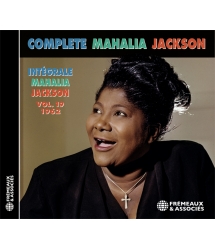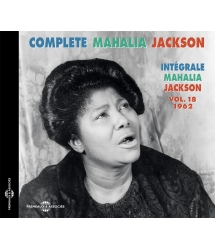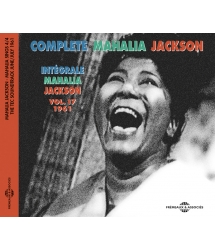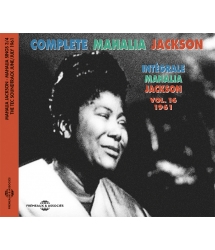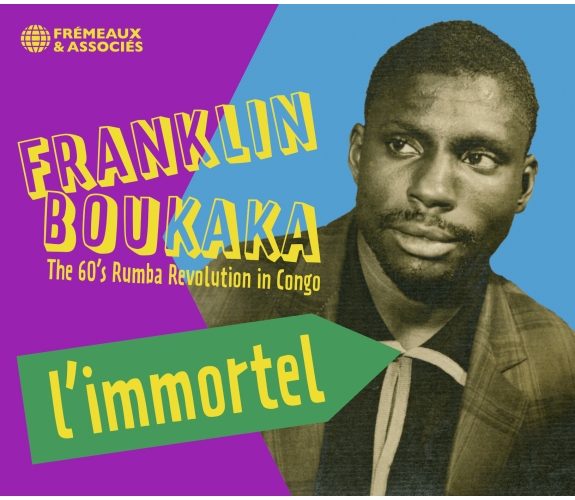- Our Catalog
- Philosophy
- Philosophers of the 20th century and today
- History of Philosophy (PUF)
- Counter-History and Brief Encyclopedia by Michel Onfray
- The philosophical work explained by Luc Ferry
- Ancient thought
- Thinkers of yesterday as seen by the philosophers of today
- Historical philosophical texts interpreted by great actors
- History
- Books (in French)
- Social science
- Historical words
- Audiobooks & Literature
- Our Catalog
- Jazz
- Blues
- Rock - Country - Cajun
- French song
- World music
- Africa
- France
- Québec / Canada
- Hawaï
- West Indies
- Caribbean
- Cuba & Afro-cubain
- Mexico
- South America
- Tango
- Brazil
- Tzigane / Gypsy
- Fado / Portugal
- Flamenco / Spain
- Yiddish / Israel
- China
- Tibet / Nepal
- Asia
- Indian Ocean / Madagascar
- Japan
- Indonesia
- Oceania
- India
- Bangladesh
- USSR / Communist songs
- World music / Miscellaneous
- Classical music
- Composers - Movie Soundtracks
- Sounds of nature
- Our Catalog
- Youth
- Philosophy
- News
- How to order ?
- Receive the catalog
- Manifesto
- Dictionnary











- Our Catalog
- Philosophy
- Philosophers of the 20th century and today
- History of Philosophy (PUF)
- Counter-History and Brief Encyclopedia by Michel Onfray
- The philosophical work explained by Luc Ferry
- Ancient thought
- Thinkers of yesterday as seen by the philosophers of today
- Historical philosophical texts interpreted by great actors
- History
- Books (in French)
- Social science
- Historical words
- Audiobooks & Literature
- Our Catalog
- Jazz
- Blues
- Rock - Country - Cajun
- French song
- World music
- Africa
- France
- Québec / Canada
- Hawaï
- West Indies
- Caribbean
- Cuba & Afro-cubain
- Mexico
- South America
- Tango
- Brazil
- Tzigane / Gypsy
- Fado / Portugal
- Flamenco / Spain
- Yiddish / Israel
- China
- Tibet / Nepal
- Asia
- Indian Ocean / Madagascar
- Japan
- Indonesia
- Oceania
- India
- Bangladesh
- USSR / Communist songs
- World music / Miscellaneous
- Classical music
- Composers - Movie Soundtracks
- Sounds of nature
- Our Catalog
- Youth
- Philosophy
- News
- How to order ?
- Receive the catalog
- Manifesto
- Dictionnary
1961
MAHALIA JACKSON
Ref.: FA1323
Artistic Direction : JEAN BUZELIN
Label : Frémeaux & Associés
Total duration of the pack : 1 hours 5 minutes
Nbre. CD : 1
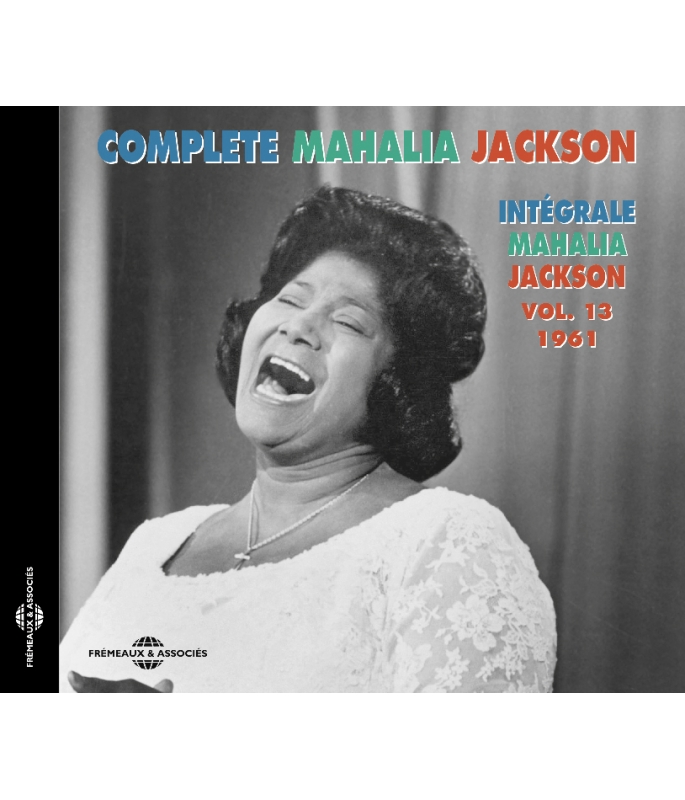
1961
1961
“Mahalia Jackson’s triumphal European tour in 1961 resulted in her being recognised universally as one of the greatest singers in the world, in whatever musical genre.” Jean BUZELIN
The complete Mahalia Jackson recordings (presented chronologically as in the Sister Rosetta Tharpe series) reveal a personality who will remain one of the greatest-ever Gospel artists, a singer who filled 20th century Afro-American culture with inspiration. The source of this vital music is the collection of Jean Buzelin, the author of this anthology, together with the aid of collectors of Mahalia Jackson's work; all these recordings have been restored with the best analog transfers and most sophisticated technology available, to avoid any alteration of the original sound.
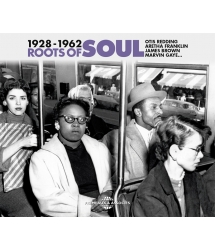
OTIS REDDING • ARETHA FRANKLIN • JAMES BROWN • MARVIN...
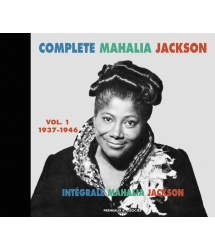
1937-1946
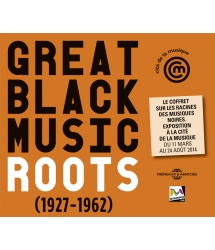
LES RACINES DES MUSIQUES NOIRES. EXPOSITION À LA CITÉ...



-
PisteTitleMain artistAutorDurationRegistered in
-
1Tell The World About ThisMahalia JacksonTraditionnel00:02:481961
-
2There Is A Balm In GileadMahalia JacksonTraditionnel00:05:171961
-
3Down By The RiversideMahalia JacksonTraditionnel00:04:511961
-
4In My Home Over ThereMahalia JacksonH.J. Ford00:06:341961
-
5He's Right On TimeMahalia JacksonD. Love00:02:501961
-
6Elijah RockMahalia JacksonTraditionnel00:04:531961
-
7It Don't Cost Very MuchMahalia JacksonT.A. Dorsey00:03:581961
-
8You'll Never Walk AloneMahalia JacksonR. Rodgers00:04:451961
-
9How I Got OverMahalia JacksonW.M. Brewster00:07:301961
-
10Joshua Fit The Battle Of JerichoMahalia JacksonTraditionnel00:03:191961
-
11I Found The AnswerMahalia JacksonJ. Lange00:02:561961
-
12Elijah RockMahalia JacksonTraditionnel00:04:431961
-
13Didn't It RainMahalia JacksonTraditionnel00:04:291961
-
14When The Saints Go Marching InMahalia JacksonTraditionnel00:06:091961
CLICK TO DOWNLOAD THE BOOKLET
Int. vol. 13 Mahalia Jackson FA1323
INTÉGRALE
MAHALIA JACKSON
VOL. 13
1961
Par Jean Buzelin
En cette fin du mois de mars 1961, Mahalia Jackson, accompagnée de sa fidèle pianiste Mildred Falls, s’embarque pour le Vieux Continent. Elle doit effectuer une tournée de deux mois qui la conduira en Angleterre, en France, aux Pays-Bas, au Danemark, en Suède, en Italie, ainsi qu’en Israel. C’est la première fois que la chanteuse retourne en Europe depuis l’automne 1952. Près de neuf ans se sont donc écoulés depuis cette première tournée au bilan mitigé — bien reçue en France, elle n’obtint pas l’accueil escompté en Angleterre — et interrompue en cours de route pour cause de maladie (1). Une longue absence mise à profit par sa grande rivale Sister Rosetta Tharpe qui, voyant sa popularité décliner aux Etats-Unis, s’est, depuis quelques années, tourné avec profit vers l’Europe où elle a occupé le terrain. Mais la Mahalia de 1961 n’est plus celle de 1952. Appuyée par une puissante major compagnie, Columbia, elle est devenue une immense vedette mondiale. Les conditions sont cette fois réunies pour que cette nouvelle aventure soit un succès.
Après une semaine de traversée sur l’Océan (rappelons qu’en 1951 elle avait effectué le voyage en avion), Mahalia débarque le mardi 4 avril à Southampton. Direction Londres. Après l’enregistrement d’un «?Mahalia Jackson Show?» à la télévision (auquel participe notamment l’orchestre de Chris Barber qui a accompagné Rosetta Tharpe lors de ses tournées), qui sera diffusé sur la BBC le 24 mai suivant, elle donne son premier récital le vendredi 7 au Royal Albert Hall devant 6000 spectateurs. Les Londoniens, qui l’avaient un peu boudée en 1952, lui font cette fois une standing ovation. Et la presse est dithyrambique : «?An extraordinary spell?» écrit Noel Goodwin dans The Express, et il ajoute «?Mahalia Jackson sang to ME last night?». citons aussi le Daily Herald et Francis Newton dans le New Statesman dont l’article fera les liner notes du futur album «?Recorded Live in Europe?» (2).
Le lundi 10 avril, elle est en Allemagne?; un concert au Muzikhalle de Hambourg, le 14, est filmé par la télévision. Puis elle retourne en Angleterre avant de se produire en Belgique. Le mardi 18, c’est le Three Falcon Theatre qui la reçoit, et le lendemain elle chante au Konzerthuset de Stockholm où le concert, enregistré, constituera l’album précité (3).
Alors qu’elle doit se rendre à Paris dans les prochains jours, éclate à Alger, le vendredi 21, le putsch des généraux. La capitale est sur le pied de guerre et cela ne va pas sans inquiéter la chanteuse. Finalement, après un passage à Amsterdam, Mahalia atterrit à Orly le dimanche 23 avril, d’où elle est conduite à l’hôtel George V. Elle rencontre Hugues Panassié, le critique français qui a fait beaucoup pour elle à ses débuts (4), et sa collaboratrice Madeleine Gautier. Le mardi, le putsch est terminé, la ville respire et Mahalia fait du tourisme : Notre-Dame, l’Étoile, la Madeleine… Le concert à l’Olympia doit avoir lieu le soir même. À ce propos, Mahalia s’informe pour savoir si ce music-hall est un endroit «?convenable?» pour un récital de chants religieux ! Accompagnée par Mildred Falls, Mahalia Jackson fait son entrée et attaque avec In My Home Over There. Mais laissons la plume à notre regretté ami Jean Tronchot :
«?En ce 25 avril, la salle de l’Olympia était remplie d’une assistance silencieuse et recueillie. Bien des gens n’avaient pas hésité à payer jusqu’à 45 NF (le concert le plus cher que l’on ait vu) pour venir applaudir «?the World’s greatest Gospel Singer?» (…). C’est vraiment le propre des grands artistes de réussir à tenir la scène une soirée entière sans que le public éprouve une impression d’ennui, seuls, ou presque, puisque Mahalia Jackson ne disposait que de Mildred Falls pour tout accompagnement (…). Mahalia Jackson possède, nul n’en disconviendra, une voix extraordinaire, un timbre personnel, des intonations qui ne peuvent laisser personne dans l’indifférence (…). Par son talent, cette grande chanteuse dépasse le cadre propre de la musique religieuse pour atteindre les sommets de la beauté universelle. (…).
Mahalia interpréta surtout des œuvres assez connues comme Didn’t It Rain, I Found The Answer, To Me It’s Wonderful ou Steal Away. Le public, hétérogène, fut comblé d’aise lorsqu’elle chanta When The Saints Go Marchin’ In ou encore les premières mesures d’In The Upper Room et Nobody Knows qu’il avait réclamé à corps et à cri. Les amateurs de jazz, eux, auraient souhaité la présence d’une basse et d’une batterie aux côtés de Mahalia, afin de «?matérialiser?», en quelque sorte, le balancement de sa musique car il faut bien reconnaître que si les accords de Mildred Falls étaient corrects en eux-mêmes, ils furent exécutés sans aucun swing, voire avec raideur. Ce défaut se faisait sentir particulièrement dans des thèmes en tempo modéré comme Down By The Riverside ou Joshua Fit The Battle Of Jericho qu’elle ponctuait de «?Halleluyah !?» enflammés. Ce qui importe, au fond, pour Mahalia, c’est la conviction qu’elle apporte à chanter (…). Ici, le terme de «?message?», si galvaudé ces dernières années, prend tout son sens : Mahalia se veut apôtre avant d’être artiste.?»(5)
Si l’on peut s’étonner du jugement sévère de Jean Tronchot à propos du jeu de Mildred Falls, unanimement apprécié depuis, il faut le remettre dans son contexte. Par rapport aux disques récents de Mahalia aux accompagnements plus (et parfois trop) étoffés, un simple accompagnement de piano pouvait paraître un peu maigre dans une grande salle comme celle de l’Olympia. Mais pour lui qui, comme pour de nombreux spectateurs, découvrait pour la première fois Mahalia Jackson en direct, il faut reconnaître la finesse de son jugement.
De son côté, Hugues Panassié, dans le Bulletin du Hot-Club de France, constate que la chanteuse a reçu «?l’une des plus formidables ovations qu’un(e) artiste noir ait reçu à Paris, et il ajoute : Mahalia Jackson est sans l’ombre d’un doute l’une des plus grandes artistes de notre époque.?»
Notons aussi l’enthousiasme (un peu maladroit) du rédacteur du texte de pochette de l’édition française du disque «?Recorded Live?» : «?(…) le public de l’Olympia lui réserve un accueil triomphal. Pendant son récital, le public qui ne veut plus partir la rappelle à neuf reprises sur la scène, mais quand elle termine la soirée en chantant Jesus Met The Woman At The Well, l’impression causée par cette prière est telle que le public n’ose plus insister et se met à quitter la salle lentement.?»(6)
Parmi les amis qui vont saluer la chanteuse dans sa loge, on retrouve Mezz Mezzrow et Billy Strayhorn, le collaborateur de Duke Ellington qu’elle avait rencontré lors de son enregistrement de la Black Brown and Beige (7).
Après Paris, Mahalia Jackson se rend en Allemagne : Munich, Hambourg, Düsseldorff, Francfort, Essen… et Berlin-Est où, dans l’immense salle du Sportpalast, elle chante The Lord’s Prayer devant 6000 personnes — c’était quelques mois avant la construction du mur. Elle poursuit par la Suisse et l’Italie. Le 6 mai, elle est reçue en audience privée par le pape Jean XXIII au Vatican. Elle s’envole ensuite pour Israël, se rend sur les rives du Jourdain — Roll, Jordan, Roll — qu’elle imaginait bien plus large ! à Bethlehem et en d’autres endroits de la «?Terre Sainte?». Elle donne des concerts à Jérusalem, à Tel-Aviv, puis poursuit son voyage en Égypte, au Liban (Beyrouth), en Syrie (Damas)…
Ainsi s’achève une tournée triomphale de huit semaines, voyages compris. Il y en aura d’autres…
Le répertoire choisi par Mahalia Jackson se compose d’un large choix effectué parmi ses Gospel songs favoris et des negro spirituals que tout le monde connaît. Mais elle ne semble répondre qu’à minima aux demandes des spectateurs. Il semble d’ailleurs que ce vaste répertoire varie d’une soirée à l’autre et n’est pas fixé dans un ordre précis une fois pour toutes. Ainsi les titres cités par Jean Tronchot ou qui, enregistrés à l’Olympia, complètent notre volume, sont assez différents des morceaux qui figurent sur le microsillon du concert de Stockholm que nous reproduisons ici dans son entier et dans l’ordre du 33 tours original, sachant qu’il ne propose lui-même que des extraits d’un récital qui, selon toute vraisemblance, devait être beaucoup plus long.
Parmi les negro spirituals, on note Didn’t It Rain qu’elle avait enregistré une première fois en 1953 pour Apollo, puis à plusieurs reprises pour Columbia les années suivantes?; ce traditionnel largement «?modernisé?» par Roberta Martin, est l’un des chevaux de bataille de Mahalia. Elle l’a chanté à Newport en 1958, de même que When The Saints et Joshua Fit The Battle. Enregistrés en studio plus récemment, en 1959, elle a mis à son répertoire Tell The World About This, I Found The Answer et Elijah Rock?; ce dernier titre deviendra aussi l’un de ses favoris. Enfin nous remarquons que There Is A Balm In Gilead n’a encore jamais fait l’objet d’un disque en studio. De même que He’s Right On Time, un chant gospel composé par Dorothy Love Coates et enregistré par elle-même et ses Gospel Harmonettes en 1954. It Don’t Cost Very Much, de Thomas A. Dorsey, est également une valeur sûre pour Mahalia qui l’a aussi chanté au festival de Newport. Elle relance également In My Home Over There, l’un de ses premiers disques, gravé pour Apollo en 1947, et le célèbre How I Got Over qui fut l’un de ses premiers grands succès en 1951. Et puis elle a conservé You’ll Never Walk Alone, ce standard de Broadway remis au goût du jour qu’elle enregistra lors de sa première séance pour Columbia en 1954. Tout cela forme un programme très varié et équilibré que nous pouvons apprécier de nouveau, pour la voix, la présence, l’entrain et la force de conviction de la chanteuse, au demeurant parfaitement accompagnée par Mildred Falls, même si la prise de son live relègue un peu le piano à l’arrière-plan. Enfin, ces extraits enregistrés témoignent à merveille de l’impact et du succès que Mahalia Jackson a obtenu durant cette tournée, l’enthousiasme palpable du public est là pour le confirmer. Un enchantement !
Jean BUZELIN
© FRÉMEAUX & ASSOCIÉS 2015
Jean Buzelin est l’auteur de Negro Spirituals et Gospel Songs, Chants d’espoir et de liberté (Ed. du Layeur/Notre Histoire, Paris 1998)?; il collabore à la Gospel Discography de Cedric J. Hayes & Robert Laughton (rubriques Mahalia Jackson, Sister Rosetta Tharpe, Golden Gate Quartet, etc.).
Notes :
(1) Voir Complete Mahalia Jackson Vol. 3 (FA 1313).
(2) Mahalia Jackson, Recorded Live in Europe during her latest Concert Tour (Columbia CL 1726).
(3) Àu sujet de la date de ce concert, les avis divergent. Le disque mentionne la date du 18, reprise ensuite dans les discographies
(cf. Gospel Discogrphy), tandis que Laurraine Goreau, sa biographe, le situe le jeudi 20 puisque, d’après elle, la chanteuse était à
Copenhague le 18 (p. 291 et 293), et elle est très précise quant à l’emploi du temps de Mahalia les 18, 19 et 20.
(4) Panassié l’avait rencontré à New York en 1949 en compagnie de Mezz Mezzrow.
(5) Jean Tronchot, in Jazz Hot N° 166, juin 1961.
(6) Texte de pochette, signé D.S.?; l’édition française est titrée Mahalia Jackson en Europe (Philips B. 47.147.L).
(7) Voir Complete Mahalia Jackson Vol. 8 (FA 1318).
Ouvrages consultés :
Laurraine Gorreau : Mahalia (Lion Pub., UK 1976 - 2e édition)
Jules Schwerin : God To Tell It :Mahalia Jackson (Oxford University Press, 1992)
Cedric J. Hayes & Robert Laughton : Gospel Discography 1943-1970 (Eyeball Productions Inc., 2007)
Remerciements à Patrice Buzelin
Photos & collections : Aubert, X (D.R.)
COMPLETE MAHALIA JACKSON - VOL 13 - 1961
By Jean Buzelin
At the end of March 1961 Mahalia Jackson, accompanied by her loyal pianist Mildred Falls, set sail for a two-month long European tour that would take her to England, France, Germany, the Netherlands, Denmark, Sweden, Italy as well as Israel. It was her first trip to Europe since autumn 1952. It was almost 9 years since this first tour which had a mixed reception — well received in France but less so in England — and which had to be interrupted due to illness (1). This long absence was taken advantage of by her great rival Sister Rosetta Tharpe who, seeing her popularity wane in America, had been making several European tours where she held the stage. However, the Mahalia of 1961 was no longer the Mahalia of 1952. Backed by the powerful recording company Columbia she had become a huge international star. Everything suggested that this new tour would be a great success.
After a week’s voyage (she had flown to Europe in 1951 but had developed a deep-seated fear of flying), she disembarked at Southampton on Tuesday 4 April and headed for London. After a TV recording of “The Mahalia Jackson Show” (backed by Chris Barber who had accompanied Rosetta Tharpe on her tours) which was aired on the BBC on 24 May, she gave her first concert Friday 7 at the Royal Albert Hall to a 6000-strong audience. Although she had received a somewhat lukewarm welcome her first visit, this time there was a standing ovation. The press raved about her: “An extraordinary spell” Noel Goodwin wrote in The Express, adding “Mahalia Jackson sang to ME last night”. The Daily Herald was equally enthusiastic and an article by Francis Newton in the New Statesman was later used as the liner notes for the album “Live in Europe”. Newton, obviously deeply moved by Mahalia’s performance, writes in glowing terms: “Mahalia is one of those artists who are beyond good or bad taste She has the awe-inspiring gift of communicating the original true meaning of the words. When she sings the word “soul” we know what it is. When she sings Oh Lord My God, sending out her leonine contralto like a gigantic whip, or You’ll Never Walk Alone, placing each syllable separately like a pillar of steel, we are with her in Zion. Her astonishing voice can produce anything from small, round, convinced sound in the upper register, to a deep, soft, chest-tone of immediately communicated ecstasy and that unforgettable jubilant archangel call. As a good professional…she knows her instrument, tending to finish each song with a characteristic effect – generally a deep, smeared, rough-edged bent sound We can congratulate ourselves on two things: that this very great woman and artist is universally appreciated as the queen of Gospel singers and that she has done us the honour of visiting this country”. (2)
Monday 10 April saw her in Germany, where a concert at the Muzikhalle in Hamburg on the 14 was filmed for TV, then back to England before appearing in Belgium. On Tuesday 18 she performed at the Three Falcons Theatre and the next day sang at the Konzerthuset in Stockholm where the recorded concert formed the album mentioned above (3).
She was due in Paris shortly after but, on Friday 21, war broke out in Alger with the attempted military coup. The capital was on the brink of war which really worried Mahalia. Finally, after a gig in Amsterdam, she landed at Orly on Sunday 23 April and stayed at the George V hotel. She met French critic Hugues Parnassié who had helped her a lot in her early days (4), and his colleague Madeleine Gautier. The coup ended on the Tuesday, the city heaved a sigh of relief and Mahalia enjoyed a spot of tourism: Notre Dame, the Etoile, the Madeleine The concert that evening was planned at the Olympia, and Mahalia had first to be reassured that this “music hall” was a suitable venue for religious music! Accompanied by Mildred Falls, Mahalia opened with My Home Over There. He late Jean Tronchot takes up the tale:
“On the 25 April the Olympia was packed out with a silently expectant audience that had paid 45 new francs (the most expensive concert ever) to hear the “World’s Greatest Gospel Singer” Mahalia Jackson, backed only by Mildred Falls, certainly has an extraordinary voice that can leave no-one unmoved She surpasses the simple bounds of religious music to reach the heights of a universal beauty She sang mainly familiar titles ( I Found The Answer, To Me It’s Wonderful, Didn’t It Rain, Steal Away etc.) and delighted the audience with When The Saints Go Marchin’ In and when she launched into the opening bars of In The Upper Room or Nobody Knows Jazz fans, however, would have preferred to hear drums or double bass behind Mahalia to provide more balance for, although her phrasing was correct , it lacked swing, particularly on up-tempo tunes e.g. Down By The Riverside or Joshua Fit The Battle of Jericho.” (5)
Although Jean Tronchot’s opinion of Mildred Falls’ contribution may appear somewhat harsh, it should be judged within the context of the time. Compared to Mahalia’s recent records with a bigger (sometimes too big) backing, a single piano accompaniment could seem a little thin for a large venue such as the Olympia. But for him, as well as for numerous spectators, seeing Mahalia Jackson for the first time live, we must acknowledge the acuteness of his judgement.
Hugues Parnassié, on his part, in the Bulletin du Hot Club de France, wrote that the singer received “one of the most formidable ovations that a black artist has received in Paris”, adding “Mahalia Jackson is without the shadow of a doubt one of the greatest artists of our era”.
There is also the enthusiasm of the sleeve note writer on the French version of the “Recorded Live” album: “the Olympia audience gave her a triumphal welcome. During her performance they didn’t want to leave and called her back on stage nine times but, when she closed with a
version of Jesus Met The Woman At The Well, the effect caused by this prayer was such that they didn’t dare insist any longer and began to file out quietly.” (6)
The friends who went to congratulate her back stage included Mezz Mezzrow and Billy Strayhorn, Duke Ellington’s sideman whom she had met when recording Black, Brown and Beige (7).
After Paris Mahalia, went to Germany: Munich, Hamburg, Düsseldorf, Frankfurt, Essen and East Berlin where, in the huge Sportpalast, she sang The Lord’s Prayer to a crowd of 6,000 – just a few months before the Wall went up. Then on to Switzerland and Italy. On the 6 May she had a private audience with Pope John XXIII at the
Vatican. She then flew to Israel where she visited the banks of the River Jordan — Roll, Jordan, Roll — that she had expected to be much wider, and Bethlehem and various other places in the Holy Land. She gave concerts in Jerusalem and Tel-Aviv before going on to Egypt, Libya (Beirut) and Syria (Damascus).
And so ended a two-month triumphant tour. There would be others …
The repertoire chosen by Mahalia included many of her favourite Gospel songs and Negro Spirituals that everybody was familiar with. However she did not appear to be particularly influenced by public demand. It also appears that this vast repertoire varied from one concert to another and there was no fixed programme. Thus, the titles quoted by Jean Tronchot which, recorded at the Olympia, complete this CD are different from the pieces on the LP of the Stockholm concert which we include here in full and in the order of the original record, while he, himself, mentions only extracts from a concert which must have been much longer.
She had already first recorded the Negro Spiritual Didn’t It Rain for Apollo in 1953, then several times for Columbia later; this traditional song, largely updated by Roberta Martin, remained one of Mahalia’s favourites. She sang it at Newport in 1958, along with When The Saints and Joshua Fit The Battle. On a more recent studio recording in 1959 she added Tell The World About This, I Found The Answer and Elijah Rock to her repertoire, the latter also becoming one of her favourites. However, she never made a studio recording of There Is A Balm In Gilead. Neither of He’s Right On Time, a Gospel song composed by Dorothy Love Coates and recorded by herself and her Gospel Harmonettes in 1954. Thomas A. Dorsey’s It Don’t Cost Very Much also was one of Mahalia’s most popular renditions which she also sang at the Newport Festival. She also relaunched In My Home Over There, one of her first recordings for Apollo in 1947 and the famous How I Got Over which was one of her first big hits in 1951. And, of course, she stuck by the Broadway standard You’ll Never Walk Alone that enjoyed a new-found popularity when she recorded it at her first Columbia session in 1954. All of this made up a very varied and balanced programme, which enables us to appreciate yet again the voice, the presence, the drive and profound conviction of the singer, backed as always by Mildred Falls, even though the sound recording on live performances often relegates the piano to the background. Overall, these recorded extracts reveal to perfection the impact that Mahalia had during this tour, confirmed by the palpable public enthusiasm. A delight!
Adapted from the French text of Jean BUZELIN
by Joyce WATERHOUSE
© FRÉMEAUX & ASSOCIÉS 2015
Jean Buzelin is the author of Negro Spirituals and Gospel Songs, Songs of hope and freedom (Ed. du Layeur/Notre Histoire Paris 1998); he collaborated on the Gospel Discography by Cedric J. Hayes & Robert Laughton (sections on Mahalia Jackson, Sister Rosetta Tharpe, Golden Gate Quartet etc.).
Notes
See Complete Mahalia Jackson Vol.3 (FA1313).
Mahalia Jackson, Recorded live in Europe during her latest Concert Tour (Columbia CL 1726).
Opinions differ as to the date of this concert. The record mentions the 18th, the same date repeated again in discographies (e.g. Gospel Discography) while her biographer Laurraine Goreau situates it on Thursday 20 since, according to her, the singer was in Copenhagen on the 18 (p. 291 and 293) and she is very precise about Mahalia’s movements on the 18,19 and 20.
Parnassié had met her in New York in 1949, together with Mezz Mezzrow.
Jean Tronchot, in Jazz Hot N° 166, June 1961.
Sleeve note signed D.S; the French version is entitled Mahalia Jackson en Europe (Philips B. 47.147.L).
See Complete Mahalia Jackson Vol.8 (FA1318).
Works consulted:
Laurraine Gorreau: Mahalia (Lion Pub. UK 1976 – 2nd edition)
Jules Schwerin: God To Tell It: Mahalia Jackson (O.U.P., 1992)
Cedric J. Hayes & Robert Laughton: Gospel Discography 1943 – 1970 (Eyeball Productions, Inc. 2007)
With special thanks Patrice Buzelin
Photos & Collections: Aubert, X (D.R.)
?1. TELL THE WORLD ABOUT THIS (Trad. - arr. M. Jackson) XSM 54863
?2. THERE IS A BALM IN GILEAD (Trad.) XSM 54863
?3. DOWN BY THE RIVERSIDE (Trad.) XSM 54863
?4. IN MY HOME OVER THERE (H.J. Ford) XSM 54863
?5. HE’S RIGHT ON TIME (D. Love) XSM 54863
?6. ELIJAH ROCK (Trad. - arr. J. Hairston) XSM 54864
?7. IT DON’T COST VERY MUCH (T.A. Dorsey) XSM 54864
?8. YOU’LL NEVER WALK ALONE (R. Rodgers - O. Hammerstein II) XSM 54864
?9. HOW I GOT OVER (W.M. Brewster) XSM 54864
10. JOSHUA FIT THE BATTLE OF JERICHO (Trad. - arr. M. Jackson) Job 62613B
11. I FOUND THE ANSWER (J. Lange) Job 62613B
12. ELIJAH ROCK (Trad. - arr. J. Hairston) Job 62613B
13. DIDN’T IT RAIN (Trad. - arr. R. Martin) Job 62613B
14. WHEN THE SAINTS GO MARCHING IN (Trad. - arr. M. Jackson) Job 62613B
Mahalia Jackson (vocal), accompagned by Mildred Falls (piano) :
(1-9) Recorded live, Konzerthuset, Stockholm (SW), 18 or 20/04/1961
(10-14) Recorded live, Olympia, Paris (F), 25/04/1961
En cette fin du mois de mars 1961, Mahalia Jackson, accompagnée de sa fidèle pianiste Mildred Falls, s’embarque pour le Vieux Continent. Elle doit effectuer une tournée de deux mois qui la conduira en Angleterre, en France, aux Pays-Bas, au Danemark, en Suède, en Italie, ainsi qu’en Israel… Jean Buzelin
At the end of March 1961 Mahalia Jackson, accompanied by her loyal pianist Mildred Falls, set sail for a two-month long European tour that would take her to England, France, Germany, the Netherlands, Denmark, Sweden, Italy as well as Israel…Jean Buzelin
La triomphale tournée européenne de Mahalia Jackson en 1961 lui permet d’être reconnue partout comme l’une des plus grandes chanteuses du monde, tous genres confondus.
Mahalia Jackson’s triumphal European tour in 1961 resulted in her being recognised universally as one of the greatest singers in the world, in whatever musical genre.
L’Intégrale chronologique Mahalia Jackson (de même que la série consacrée à Sister Rosetta Tharpe) offre l’œuvre exhaustive de celle qui restera l’une des plus grandes artistes de Gospel, et par la même, l'une des grandes inspiratrice de la culture noire-américaine du XXe siècle. Les disques sources, en provenance de la collection de Jean Buzelin, auteur de l'Intégrale, aidé par l’ensemble des collectionneurs des œuvres de Mahalia Jackson, font l’objet des meilleurs transferts analogiques et d’une restauration numérique utilisant les technologies les plus sophistiquées sans jamais recourir à une modification du son d’origine. Patrick Frémeaux et Claude Colombini
The complete Mahalia Jackson recordings (presented chronologically as in the Sister Rosetta Tharpe series) reveal a personality who will remain one of the greatest-ever Gospel artists, a singer who filled 20th century Afro-American culture with inspiration. The source of this vital music is the collection of Jean Buzelin, the author of this anthology, together with the aid of collectors of Mahalia Jackson's work; all these recordings have been restored with the best analog transfers and most sophisticated technology available, to avoid any alteration of the original sound.
MAHALIA JACKSON Vol. 13 – 1961
IN EUROPE
?1. TELL THE WORLD ABOUT THIS 2’48
?2. THERE IS A BALM IN GILEAD 5’18
?3. DOWN BY THE RIVERSIDE 4’51
?4. IN MY HOME OVER THERE 6’34
?5. HE’S RIGHT ON TIME 2’51
?6. ELIJAH ROCK 4’53
?7. IT DON’T COST VERY MUCH 3’59
?8. YOU’LL NEVER WALK ALONE 4’46
?9. HOW I GOT OVER 7’26
10. JOSHUA FIT THE BATTLE OF JERICHO 3’20
11. I FOUND THE ANSWER 2’57
12. ELIJAH ROCK 4’43
13. DIDN’T IT RAIN 4’30
14. WHEN THE SAINTS GO MARCHING IN 6’10
